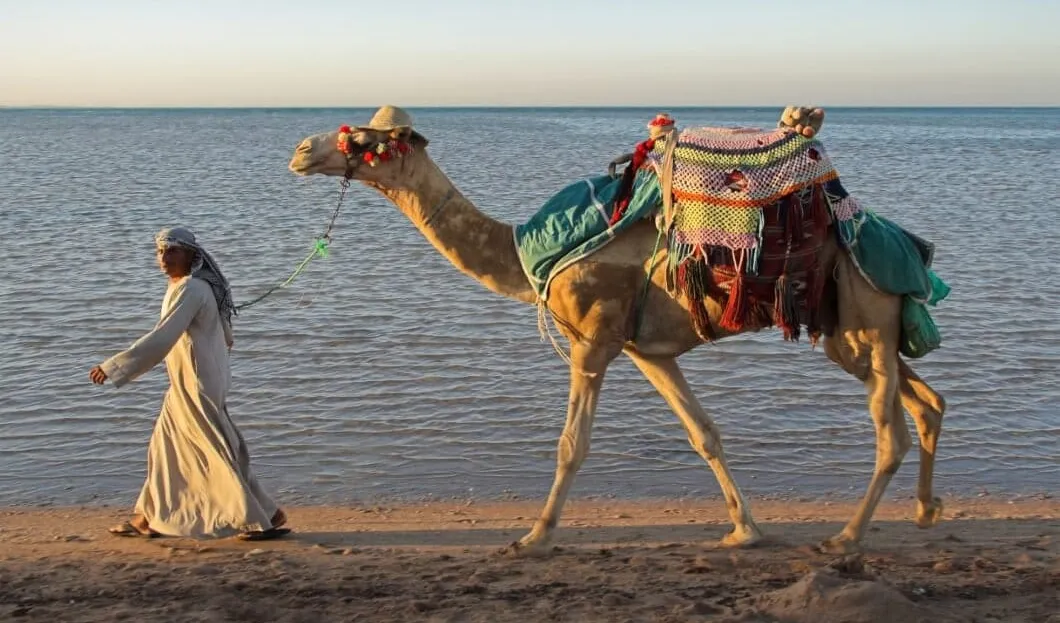
Ras Hankorab Beach sits quietly along Egypt’s southern Red Sea, a natural retreat with clear blue water and soft, pale sands. Tucked away in the vast Wadi el-Gemal National Park, it isn’t far—a roughly 90‐minute drive from Marsa Alam International Airport and about four hours from the lively Hurghada resorts. Yet despite its secluded charm and status as one of Egypt’s few remaining marine sanctuaries, locals and nature advocates are growing increasingly uneasy about looming development plans.
A Fragile Ecosystem Under Threat
The Ras Hankorab Beach bursts with life—a mix of colorful corals, sprawling seagrass beds, twisting mangroves, endangered turtles drifting along the shore, and a host of fish species. That reef here, in particular, is famous worldwide; the Hurghada Environmental Protection and Conservation Association even points to its surprising ability to cope with climate swings. Some hope it might help revive other damaged reefs or even rescue species on the brink. Still, rumors of small accommodation huts, a casual eatery, and even a farm have set off alarm bells among conservationists, who worry that even light construction could harm this delicate natural mosaic.
Asmaa Ali, executive director at Ecoris—a local group focused on sustainable development—often reminds everyone how special the beach really is. “You have one of the rarest reefs right on the reserve’s edge, alongside endangered sea turtles and growing mangroves,” she says. Sherif Baha el-Din, who helped found Wadi el-Gemal National Park, says that travelers now search for genuine, unspoiled nature instead of cookie-cutter concrete resorts. “The more we build along the Red Sea, the more we risk losing a part of our heritage,” he insists. “If development is unavoidable, then we really need to be smart about the site—and sometimes, not building at all is the best choice.”
Egypt’s Tourism Boom and Economic Pressures
Tourism is the lifeblood of Egypt’s economy. In 2024, the country earned a staggering $14.1 billion from it—more than twice what comes from the Suez Canal, according to a UN Tourism report. With around 17 million visitors recorded that year, showing a steady 17% yearly rise, there’s a real push to expand infrastructure, better air links and even create coastal and desert holiday packages. Yet, when you stack these figures against regional hotspots like Turkey’s 62 million, Greece’s 35 million, or Dubai’s 18.7 million, Egypt’s ambitions look rather modest by comparison. Amid ongoing economic challenges, the government has even offered private developers investment licenses in national parks. While projects can range in scale, the one set for Ras Hankorab Beach has drawn extra suspicion, as many fear it could wipe out one of the nation’s few untouched marine havens. Local voices worry about losing a natural treasure forever, and experts caution that any damage might ripple through the broader ecosystem.

The Fight to Protect the Ras Hankorab Beach
A plain wooden fence now marks the boundary of the beach—an unassuming barrier that has come to symbolize the clash between new development ideas and efforts to protect nature. Determined activists have been putting in long hours to halt the project, arguing that keeping the park’s unique environment intact offers more lasting benefits than any short-term boost in finances can. They point out that the unspoiled landscape and thriving marine life are what really draw eco-minded travelers, whose numbers are steadily on the rise, into the region.
A Call for Sustainable Tourism
At its heart, the struggle over Ras Hankorab Beach throws into sharp relief a bigger dilemma facing Egypt: balancing economic growth with preserving natural beauty. Tourism is absolutely critical, yet unchecked development could end up driving away the very visitors who cherish and come for its natural allure. As the debate drags on, many believe that the fate of this beach will ultimately set the tone for how Egypt approaches development in its other pristine areas. A yardstick revealing Egypt’s genuine drive for green travel – and its solid promise to guard a treasured natural legacy.










